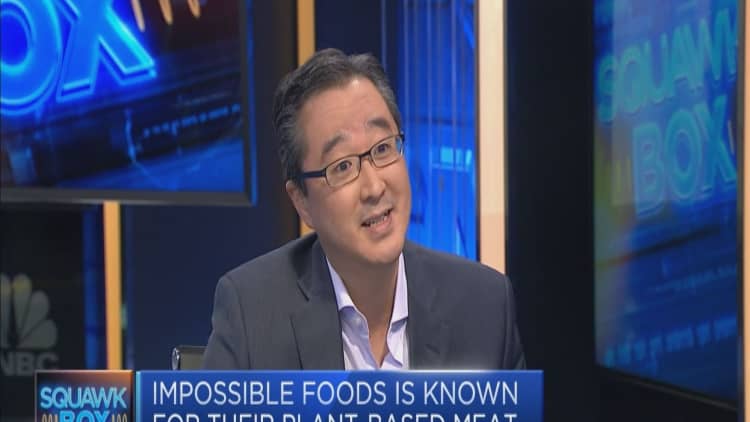
As the fight against "fake meat" rages on in the U.S., Silicon Valley-based Impossible Foods is expanding beyond the country.
The food start-up, which manufactures a plant-based burger it calls the "Impossible Burger," is now taking its flagship product to Hong Kong.
Speaking with CNBC's "Squawk Box" on Thursday, Impossible Foods CFO and COO David Lee said the company's mission is to be "everywhere," and Hong Kong was chosen as the first city for the international expansion due to its reputation as a culinary "epicenter."
"It's not just a great place to have great food," Lee said, "it's a place where food trends expand across Asia and has the best chefs in the world."
"We're starting small because we're starting with taste makers so that they can help us build a following," he added, speaking about the company's new partnership with acclaimed chefs May Chow and Uwe Opocensky.
Affordable meatless
The company has been making waves in the alternative meats industry with the launch of the "Impossible Slider" at the White Castle fast food chain.
"The Impossible Slider, at $1.99, is at a price where everyone can enjoy it," Lee said.
Asked how the company keeps its products at an affordable price point, Lee said the company's production costs are closely associated with the reduced amount of impact its production methods have on the environment.
"When you use 95 percent less land and a quarter of the water, when you produce an eighth of the greenhouse gases," he said, "you create an affordable way to be accessible."
Beyond the need to keep costs down, Lee also articulated the importance of getting the meat eater to "crave your product."
Admitting that he is a meat eater himself, Lee said, "No meat eater is going to be brow-beaten into making a better choice."
"They just got to be given a crave-able, delicious piece of meat that happens to be a better choice," he said.
In Impossible Foods' case, Lee said, the company convinced meat eaters to try its product by leveraging "the great taste makers" trusted by the target audience.
"Don't take our word for it," he said. "Take it from the best chefs, I think, in the world."


